Massimo CristofanilliProfessor of Medicine, Associate Director of Translational Research and Precision Medicine, Robert H Lurie Comprehensive Cancer Center, Northwestern University Dr. Cristofanilli received his medical degree in 1986 from the University “La Sapienza” Medical School in Rome (Italy) where he subsequently completed a Fellowship in Medical Oncology in November 1990. In July 1996, he started a Medical Oncology Fellowship at the University of Texas M. D. Anderson Cancer Center. Between 1998 and 2010 he held a faculty position in the Department of Breast Medical Oncology at the University of Texas M. D. Anderson Cancer Center where he served as an Associate Professor of Medicine and Executive Director of the Morgan Welch IBC clinic and research program that he founded in 2006. In 2010 he joined the Fox Chase Cancer Center in Philadelphia as Chairman of Medical Oncology, Leader of the Breast Service Line and co-Leader of the Women Cancer Program. Subsequently, he served as Director of the Jefferson Breast Cancer Center and Clinical program and Deputy Director of Translational Research at the SKCC. He is currently the Associate Director of Translational Research and Precision Medicine at the Robert Lurie Comprehensive Cancer Center and Director of the oncoSET Program. |
Yves A. DeClerckProfessor of Pediatrics and Biochemistry & Molecular Medicine, Children’s Hospital Los Angeles, University of Southern California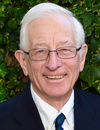 Yves DeClerck, MD, is a Pediatrician-Scientist at Children’s Hospital Los Angeles and USC, and the holder of the Richard Call Family Chair in Pediatric Research Innovation. He is leading a cancer biology research program focused on the Tumor Microenvironment (TME) and its contribution to cancer progression and metastasis. The main objective of the laboratory is to understand fundamental mechanisms of communication between tumor cells and stromal cells in the TME in order to identify targets for therapeutic intervention that can be tested in relevant pre-clinical models. The research program has 3 major directions: (1) Contribution of MSC and cancer-associated fibroblasts (CAF) to neuroblastoma progression; (2) Contribution of exosomes and extracellular vesicles to the education of CAF/MSC and macrophages by tumor cells; and (3) Role of plasminogen activator inhibitor-1 (PAI-1) in cancer progression. |
Dolores Di VizioProfessor, Cedars Sinai Medical Center Dr. Dolores Di Vizio is a pathologist and a molecular and cell biologist trained at Albert Einstein College of Medicine, and Harvard Medical School. Dr. Di Vizio holds an academic appointment as associate professor at Cedars-Sinai Medical Center, and at the University of California, Los Angeles. She is an Executive Chair of the International Society of Extracellular Vesicles (ISEV). Her group studies the molecular mechanisms of progression to advanced disease in human tumors, with a particular emphasis on large oncosomes, extracellular vesicles (EVs) shed into the extracellular space from fast migrating and metastatic amoeboid cancer cells. Her lab is currently profiling the large oncosomes and other EV populations by NGS and proteomics for functional and molecular characterization. |
Sam HanashDirector, McCombs Institute for Cancer Detection and Treatment, University of Texas MD Anderson Cancer Center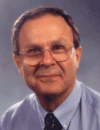 Director, Red and Charline McCombs Institute for the Early Detection and Treatment of Cancer. |
David HoonProfessor, Director Department of Translational Molecular Medicine, John Wayne Cancer Institute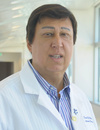 Professor Hoon is a pioneer in “liquid biopsy” translational studies; have received multiple grants and published since the mid 90’s in the fields of circulating tumor cells (CTC) and cell free nucleic acids (CFNA) as prognostic, predictive, and diagnostic molecular biomarkers. I have significant expertise, leadership, and publication record in the field in the last 20 years. Professor Hoon expertise includes multiple patents (USA, International). Some of the liquid biopsy assays have been transferred to biotech companies. Professor Hoon is an advisor, scientific board member, and founder on multiple biotech companies as well as CLIA biotechs in liquid biopsy analysis in the USA and internationally. Professor Hoon has run several phase II/III clinical trials as companion Dx on liquid biopsy showing clinical utility. Professor Hoon is on the executive advisory board and member participant of CANCER-ID European International Program; a Multicenter Clinical Trial group verifying and validating CFNA. Over the last 20 years Professor Hoon has developed new approaches and techniques in isolation of CFNA as well as interrogating many forms in multiple types of solid tumors including melanoma, breast, lung, gastrointestinal, and brain tumors. Through Professor Hoon's position as a PI co-Investigator on multiple CA state, DOD, Biotech, Pharma, and NIH-funded grants(R21, R33, PO1s, RO1s), Professor Hoon has extensive experience and publications. Professor Hoon has served as Chairman several times on the SBIR NIH CFDNA phase I/II grant reviews. Professor Hoon is one of the pioneers in the 90’s demonstrating clinical utility of CFNA in patients relating to clinical outcomes. In addition Professor Hoon has extensive experience in translational molecular oncology relating to diagnostic and prognostic genomic, transcriptome and epigenetic biomarkers in tissues in Phase I/II/III clinical trials. |
Jennifer JonesNIH Stadtman Investigator, Head of Transnational Nanobiology, Laboratory of Pathology, Center for Cancer Research, National Cancer Institute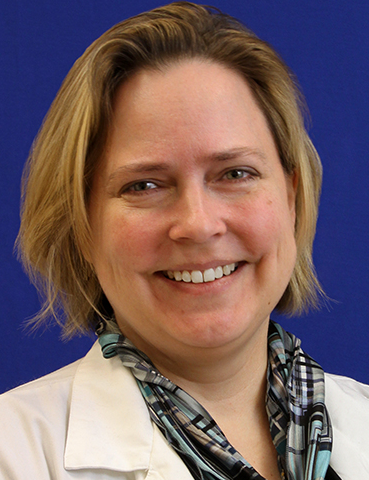 Dr. Jones is NIH Stadtman Investigator, Head of Transnational Nanobiology, Laboratory of Pathology at the Center for Cancer Research, National Cancer Institute, who is developing, refining, and applying advanced high-resolution flow cytometric methods to the characterization of EV subsets. She initiated/cofounded the international ISEV-ISAC-ISTH EV Flow Cytometry Working Group, to support the development of consensus best practices and standardization methods for the field. The ultimate goal of her research is to develop a new class of EV-based biomarkers (and methods for anlyzing those EVs) that will enable adaptve therapeutic strategies, where individual patient treatments are customized based on early responses to treatment. |
Cheng-Ho Jimmy LinChief Scientific Officer, Oncology, Natera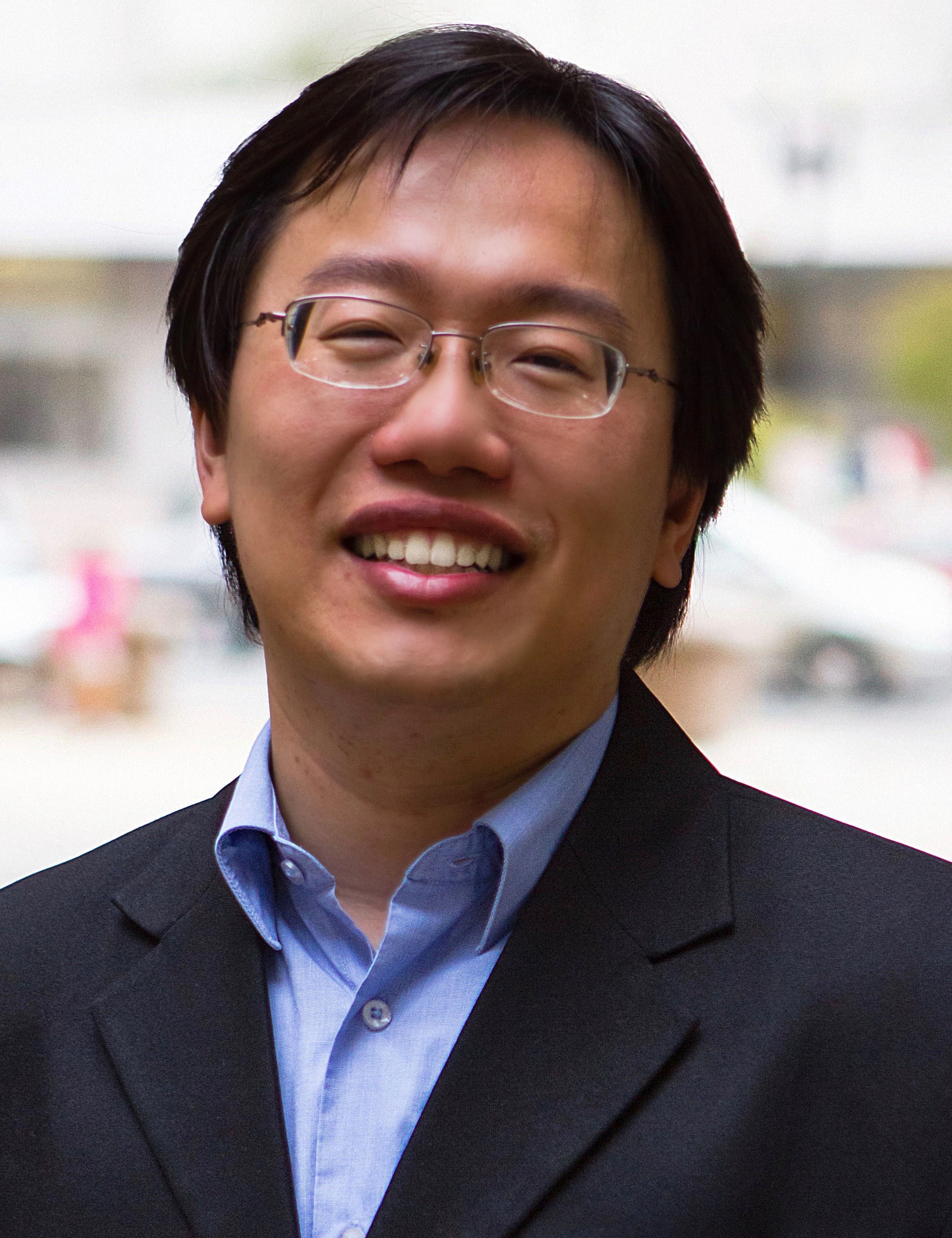 Dr. Cheng-Ho Jimmy Lin is the Chief Scientific Officer, Oncology, at Natera. He comes from a long history as a pioneer in cancer genomics. Most recently, he led the clinical genomics program at the National Cancer Institute (NCI) at the National Institutes of Health (NIH). Previously, at Johns Hopkins and Washington University in St. Louis, Dr. Lin was part of one of the first clinical genomics labs in academia and led the computational analyses of the first ever exome sequencing studies in cancer, including breast, colorectal, pancreatic, glioblastoma, medulloblastoma, and melanoma. He has published in top academic journals, such as Science, Nature, and Cell, and has been an expert in national and international media outlets, such as New York Times, Forbes, Bloomberg Businessweek, Washington Post, and the Financial Times. Dr. Lin holds an MHS in Bioinformatics, a PhD in Cellular and Molecular Medicine, and an MD from Johns Hopkins University as well dual majors in Cognitive Science and Molecular Biophysics and Biochemistry from Yale University. |
John NolanCEO, Cellarcus Biosciences, Inc. Past President of ISAC. ISEV, ISTH Member. Inventor of Cellarcus’ vesicle analysis technologies. Internationally recognized expert in cytometry and vesicle analysis. |
Balaji PanchapakesanProfessor, Department of Mechanical Engineering, Worcester Polytechnic Institute (WPI)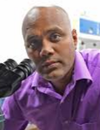 Dr. Balaji Panchapakesan is a Professor of Mechanical Engineering at Worcester Polytechnic Institute in Worcester, MA. He invented the Nanotube-CTC-Chip microarray technology. He has published over 100 articles in leading journals, and conferences. He is a conference chair of the SPIE Nanoscience and Engineering conference. His interests are in enabling nanoscience for wide variety of applications including capture of circulating biomarkers. |
Erkki RuoslahtiDistinguished Professor and Former President, Sanford Burnham Prebys Medical Discovery Institute Dr. Erkki Ruoslahti is Distinguished Professor and former president of Sanford-Burnham Institute for Medical Research and a founder of the Center for Nanomedicine at University of California, Santa Barbara. Dr. Ruoslahti is a pioneer in the field of cell adhesion. His main discovery and invention is the integrin-binding tripeptide motif RGD and integrins that recognize this motif. He now studies specific vascular addresses in directing drugs to sites of disease. Dr. Ruoslahti’s is a member of the U.S. National Academy of Sciences and National Academy of Medicine. He is the recipient of a number of awards, including the Japan Prize and Gairdner Award, and Knight and Commander of the Orders of White Rose of Finland and Lion of Finland. |
Steve SoperFoundation Distinguished Professor, Director, Center of BioModular Multi-Scale System for Precision Medicine, The University of Kansas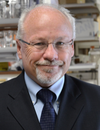 Prof. Soper is currently a Foundation Distinguished Professor in Chemistry and Mechanical Engineering at the University of Kansas, Lawrence. Prof. Soper also holds an appointment at Ulsan National Institute of Science and Technology in Ulsan, South Korea, where he is a World Class University Professor. He is also serving as a Science Advisor for a number of major worldwide companies. Prof. Soper is currently on the Editorial Board for Scientific Reports and Journal of Micro- and Nanosystems. |
Shan WangLeland T. Edwards Professor in the School of Engineering, Stanford University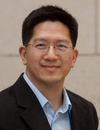 Dr. Wang is the Leland T. Edwards Professor in the School of Engineering, Stanford University. He is a Professor and Associate Chair of Materials Science & Engineering and jointly a Professor of Electrical Engineering, and by courtesy, a Professor of Radiology (Stanford School of Medicine). He directs the Center for Magnetic Nanotechnology, and is a co-Principal Investigator of the Center for Cancer Nanotechnology Excellence for Translational Diagnostics (CCNE-TD) at Stanford University. He has over 270 publications, and holds 59 issued or pending patents in the areas of magnetic nanotechnology and information storage, biosensors, spintronics, and power management. He was named an inaugural Fred Terman Fellow, and he was elected a Fellow of the Institute of Electrical and Electronics Engineers (IEEE) and a Fellow of American Physical Society (APS) for his seminal contributions to magnetic materials and nanosensors. His team won the Grand Challenge Exploration Award from Gates Foundation (2010), the XCHALLENGE Distinguished Award (2014), and the Bold Epic Innovator Award from the XPRIZE Foundation (2017). He cofounded three high-tech startups in Silicon Valley, including MagArray, Inc. and Flux Biosciences, Inc. Dr. Wang obtained his PhD in Electrical and Computer Engineering from Carnegie Mellon University in 1993, MS in Physics from Iowa State University in 1988, and BS in Physics from the University of Science and Technology of China in 1986. |




